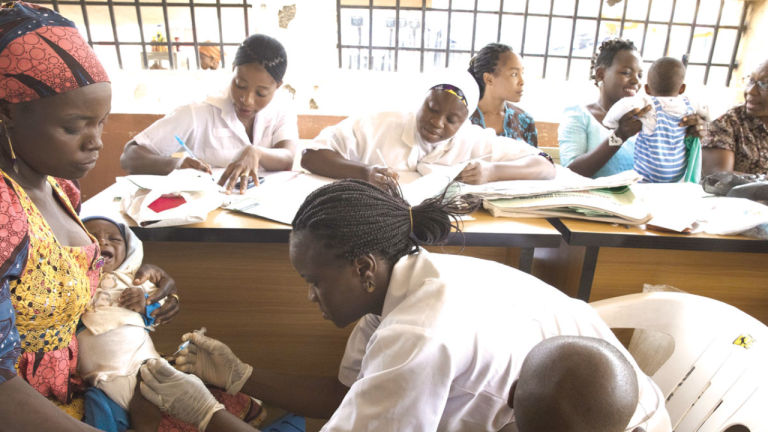The project director of epic Nigeria, Dr. Hadiza Khamofu has underscored the imperatives of an immediate action in addressing critical gaps in the country’s healthcare infrastructure.
Khamofu said this on Wednesday on the sideline of a technical session of the 64th national council on health (NCH) in Ekiti state.
Epidemic control (EpiC), is a five-year global project funded by the U.S. agency for international development (USAID), dedicated to achieving and maintaining epidemic control and prevention of diseases in countries.
Highlighting the pressing need for a comprehensive approach to disease control, Khamofu emphasised improvement in facility distribution, investing in infrastructure, and ensuring access to basic amenities, to create a more equitable and effective healthcare system in the country .
She gave a detailed evaluation of the three-tiered healthcare system, revealing that only 22 per cent of primary health facilities met the recommended catchment population coverage.
According to her, structural deficiencies, including cracked walls and leaking roofs, afflict nearly half of the crucial establishments, necessitating targeted reforms.
She outlined the key challenges to include poor facilities, inadequate water supply, and scarcity of emergency transportation system.
Khamofu attributed the challenges to poor leadership, corruption and mismanagement in the system.
While addressing the critical portion in Nigeria’s healthcare history, she called for advocacy in promoting healthcare access and good governance.
She also called for the realization of the poor facilities, inadequate water supply, and scarcity of emergency transportation system(UHC), emphasizing the need for collective responsibility.
“The assessment underscores the urgent need for strategic interventions to fortify Nigeria’s healthcare foundation and ensure equal access for all citizens,” she said.
The NCH, an apex policy-making body in the Nigerian health sector, annually brings together leaders such as permanent secretaries, health commissioners, heads of parastatals, and directors, to discuss health-related issues.
This year’s theme, building the resilience and inclusive health care system for a healthy Nigeria,” underscores the importance of a robust healthcare system in the country.


